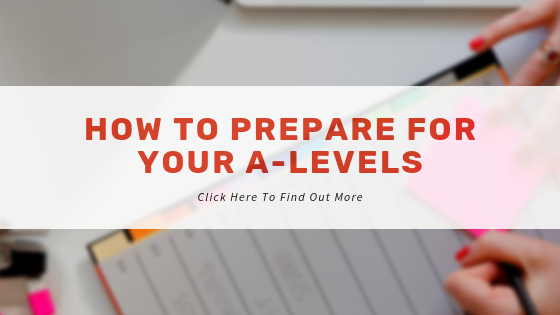A-Levels are becoming increasingly harder, which is unfortunately not something your students really want to hear, but this should not discourage you in taking this next step with your education if you feel that an academic pathway is the correct one for you. While it is true that A-Levels now require more preparation and a greater degree of dedication there are plenty of things that you can do to ensure that the preparation you do for your A-Levels is the best that this can be.
Regular Revision
All too often, students mistakenly believe that the best way to revise for an exam, and this is the same whether it is an end of unit exam or an A-Level, is to cram all the revision into a short space of time just before the exam is due to take place. This is not the best way to revise. Revision should, in fact, be a regular thing. Little and often is the best way to commit that important information to your memory, so set your self the task of sitting down at the end of every week and looking over your new notes. You need to think about the format of your notes and consider a format that makes them easy to understand and digest. It might be that the format you have taken your notes in isn’t the best one for you, rewriting them can help.
Revising in small amounts does not mean that you need to spend all of your time revising. Instead, it means that you should set aside a set amount of time each week to go over things you have already learnt. Give yourself regular breaks or even work out a schedule where you take a day off for every couple that you spend revising; do what works best for you. Use your leisure time carefully; it is just as important to take time out for you as it is to pay attention to your studies to ensure that you avoid burnout.
Use The Study Tools That Work For You
Over time you will have already worked out which types of study tools work best for you. Some people like crib cards others prefer mind maps, this is a very individual choice. Colour, images and clear text can really help you to organise information into an easy to follow format when using mind maps. And a sound mind map can boost both your concentration and memory.
Past Papers
One key concern for students in the run-up to an exam is how best to organise time during the exam. It is a very good idea to familiarise yourself with the format of the papers that you will be sitting. Not only will this give you some idea of the format that the questions take, but it will also give you an excellent understanding of how the marks are spread out over the questions so that you can work out how much time you should be spending on each section. This will help you on the day of your exam to avoid rushing and having spare time at the end of the exam because you rushed some of the earlier questions.
Your teacher may well set you past exam papers in a classroom test environment which can be helpful, but they can also be found on the internet if you would like to look at more. It is worth remembering that the questions on your paper are unlikely to be the same as those on past papers, but you should be doing them to see how the questions are set out.
Use A Study Group
Use as many of the resources that are available to you as possible. If your college offers a study group, then use it. If they don’t, then consider creating one of your own. This can be a great motivator for those people who work better in a group. If however, you work better on your own, then you may prefer not to do this.
Take Care Of Yourself
Good exam preparation is not just about the revision that you do or the preparation that you put into taking past papers. You need to take some time out to look after yourself. The A-Levels are not just the exams that you sit; they are the two full years of work that you do in the run-up to those all-important exams. Make sure that you keep your energy levels up, eat proper balanced meals, keep hydrated, make time for fresh air and exercise and perhaps most importantly get plenty of sleep. A good self-care routine will help keep you in top form, don’t be tempted to grab some food and continue studying; make time to have a proper break. Eat plenty of foods that can boost your brain, such as fresh fruit and vegetables, foods rich in Omega-3 fatty acids and nuts.
While it can be all to easy to stress the night before an exam, this will not help you. Have confidence in all the hard work that you have done and allow yourself time to de-stress before the exam – last minute cramming is never a good idea – If you don’t know it already then it is probably too late.
Choosing The Right Subjects
Of course, preparing for your A-Levels isn’t just about the work that you do for your exams in the summer of year 13. This is preparation that begins when you enter year 12. Choosing the right A-Level subjects is really important when you are preparing for the future. It is essential to consider the subjects that you want to study carefully. If you have a chosen career path in mind, then your college tutor will be able to advise you which subjects to take. If, however, you haven’t thought that far ahead then it is a good idea to go with those subjects that interest you the most; this may eventually point you in the direction of the best career choices.



